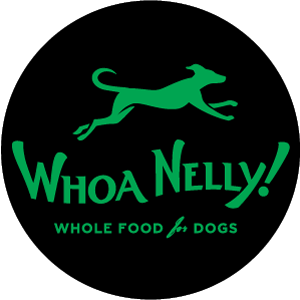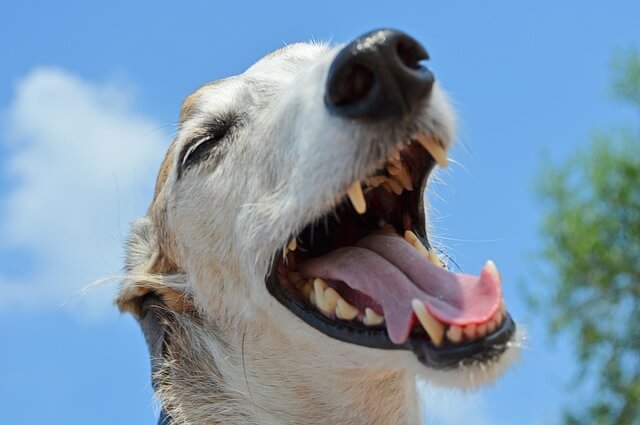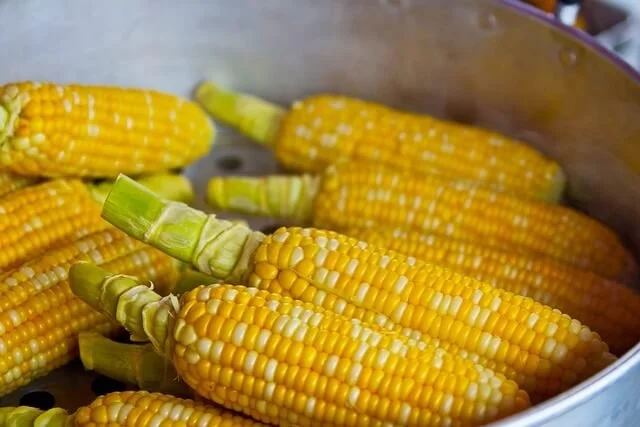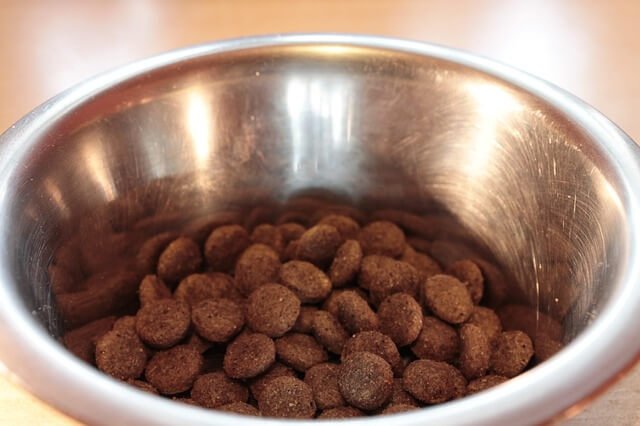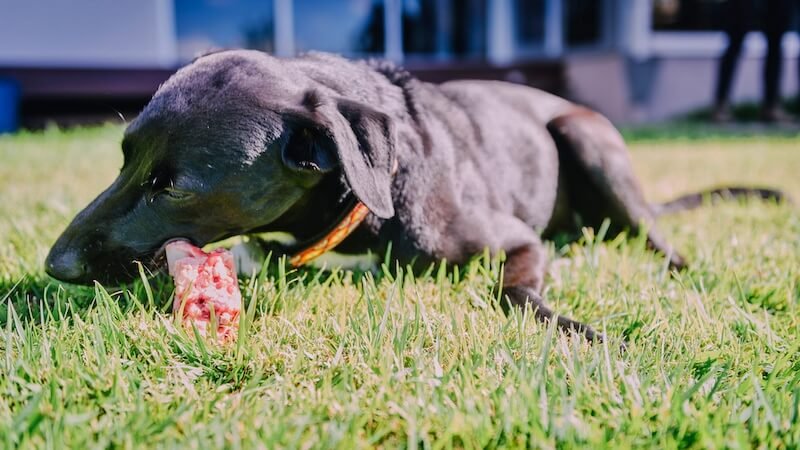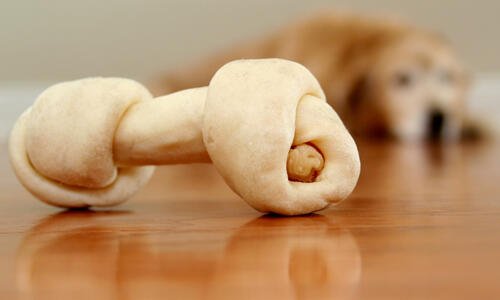Does Kibble Clean Your Dogs Teeth?
In This Article
Here’s a shocking statistic: 80% of dogs have periodontal disease by 2 years of age.
This isn't a simple cosmetic issue. Poor oral health causes serious systemic problems throughout your dog's body. The bacteria from dental disease doesn't stay in the mouth - it enters the bloodstream and can damage the heart, kidneys, and liver.
Beyond the chronic pain and tooth loss, untreated dental disease puts stress on your dog's immune system and has been linked to shortened lifespan.
Just like humans, dogs need clean teeth!
If you ask a vet they will likely tell you that kibble will clean your dogs teeth. They will also likely want to book you in for a tooth cleaning surgery that involves general anaesthetic. It’s quite an invasive procedure, which isn’t required if the teeth are kept healthy.
Lucky for us there is a simple, delicious, and cheap way to keep your dogs teeth clean. And it’s not using kibble or a processed product.
New Research
A groundbreaking new 2025 study followed 4,771 dogs over 12 years to examine how diet affects dental health. The results were clear: raw-fed dogs had significantly lower rates of dental calculus compared to kibble-fed dogs.
This wasn't a small scale trial. It’s one of the most comprehensive studies ever conducted on canine dental health, examining multiple variables including diet, environment, and lifestyle factors. The evidence overwhelmingly supports what many raw feeders have observed for years: diet directly impacts oral health.
It also is evidence contrary to the idea that kibble cleans teeth. The data does not support this.
Here's 2 simple questions that gets to the heart of it. If kibble cleans teeth, why do 80% of dogs have dental disease? And why do studies consistently show that raw fed dogs have healthier mouths?
Kibble Is Mostly Carbohydrates
Carbohydrates are the primary nutrient in kibble because it is what binds the pellets together. You can't make kibble without lots of carbs. Even the premium kibbles contain 40-60% carbohydrates. While a well formulated raw diet (like Whoa Nelly) contains just 3%.
The issue is that carbohydrates break down into sugar, and sugar feeds the harmful bacteria in your dog's mouth. Dogs don't produce amylase in their saliva like humans do. Amylase is the enzyme that starts breaking down carbohydrates the moment food hits your mouth.
Dogs can't do this.
So when your dog eats kibble, those carbohydrates sit on their teeth, giving bacteria lots of time to feed and multiply. These bacteria feast on the starches and sugars, creating a sticky biofilm (plaque) that hardens into tartar within just 24 hours.
Keep in mind that dogs have zero requirement for carbs in their diet. I’m not arguing that most dogs can’t tolerate some carbohydrate in their diet. Simply that there is a big difference between a small amount of sugar from fruits and vegetable and the diet being mostly carbohydrates. That’s going to cause health issues.
Does Kibble Clean Teeth?
The idea that kibble cleans teeth is marketing fiction. This claim has been repeated by pet food companies and vets for decades, but there's very little research supporting it. In fact, studies show the opposite.
Studies find pretty consistently that kibble fed dogs have significantly higher rates of dental disease compared to raw fed dogs. One such example is an Australian study, which showed dental health declined in just 17 days when dogs switched from raw to kibble.
It makes sense when you think about it. Kibble is soft and gets swallowed within seconds with minimal chewing. How can that remove plague? It's like trying to clean your teeth by eating cereal - it’s not going to work!
The contact time is too brief and the texture too soft to provide any meaningful cleaning action. And it leaves a carbohydrate residue that can turn into dental calculus.
Real dental cleaning requires sustained mechanical abrasion. Which is exactly what bones do. A study with beagles found that raw bones reduced dental calculus by an enormous 81-90% within just 2-3 weeks. The physical action of tearing, scraping, and gnawing is what actually cleans teeth.
How To Keep Your Dogs Teeth Healthy
Helping your dog to have clean, healthy teeth is not difficult or expensive.
Here’s how to go about it:
Feed a species appropriate raw diet that is low in carbs (<5%)
Feed raw meaty bones at least 3 times a week.
Check your dogs teeth every few weeks. Look for differences in smell, loose teeth and dental calculus. Anything out of the ordinary go and see your vet.
It’s important to note that there is no commercial diet that will be enough to keep your dogs teeth at their best. The only way to truly look after your dogs mouth is to feed raw meaty bones regularly.
Aim to feed bones a minimum of 3 days a week. It’s important to match the bone to your dogs size and needs. We generally recommend feeding lamb ribs for smaller dogs, and lamb necks, roo tails and beef “soup” bones for larger dogs.
Don’t feed weight bearing or cooked bones as they can crack teeth or splinter and create a choking hazard. Avoid fatty bones as this will likely cause digestive upset. And make sure you supervise your dog when they are eating their bone, and remove the remains after they are finished.
If bones are not an option you will need to clean your dogs teeth yourself. Make sure that you have regular check ups with your vet to make sure that the teeth are being cleaned adequately.
What about synthetic bones?
There are lots of commercial alternatives to bones available that are marketed as a better way to clean your dogs teeth. I’m very sceptical of these products for two main reasons.
Firstly, they are not able to provide the same level of mechanical cleaning action that a bone can. Their texture is softer than a bone, and typically they are designed to be eaten quite quickly. Bones have a hard rigid surface that requires prolonged chewing, working at different angles. Also I would argue that a nice bone is tastier than a processed stick.
Which leads me to the second point. Most of these dental chews have the same issue as kibble - they require carbohydrate to bind it together. For example, Greenie chews are probably the most popular on the market but are about 45% carbs.
Whatever you choose to feed your dog, having raw meaty bones as part of their diet is essential. The best bit? Most dogs love them 🐾
